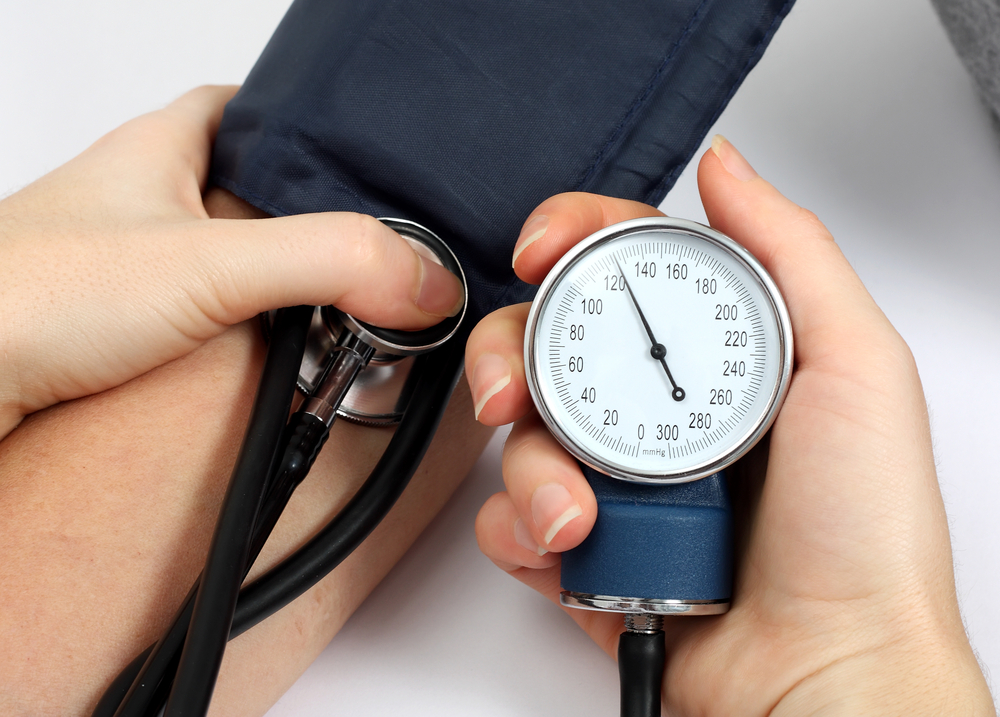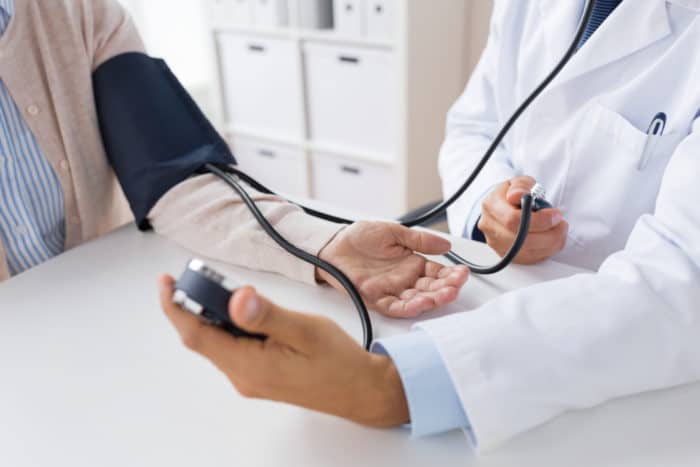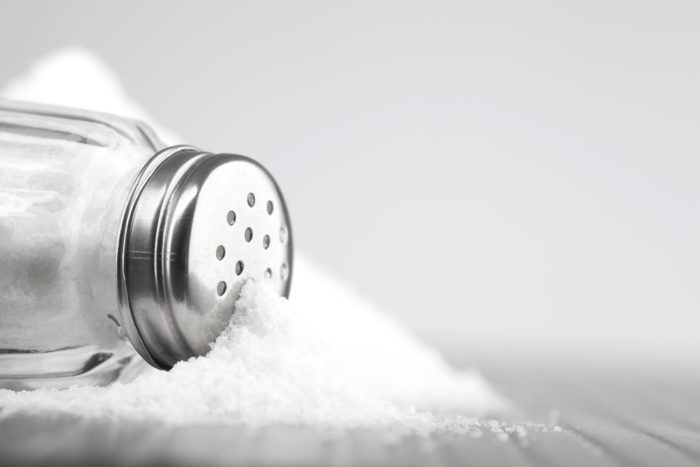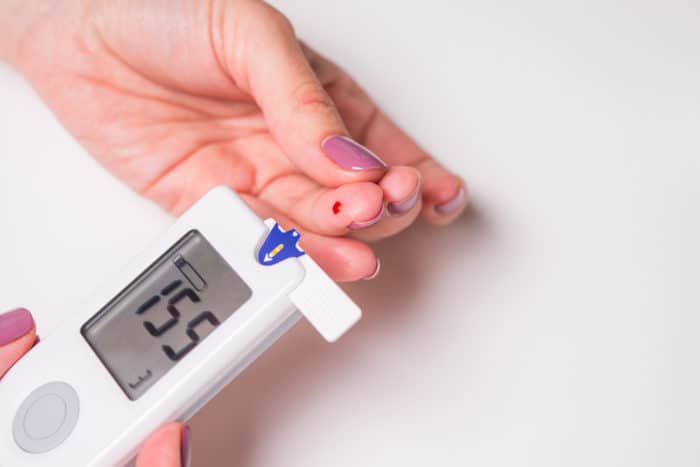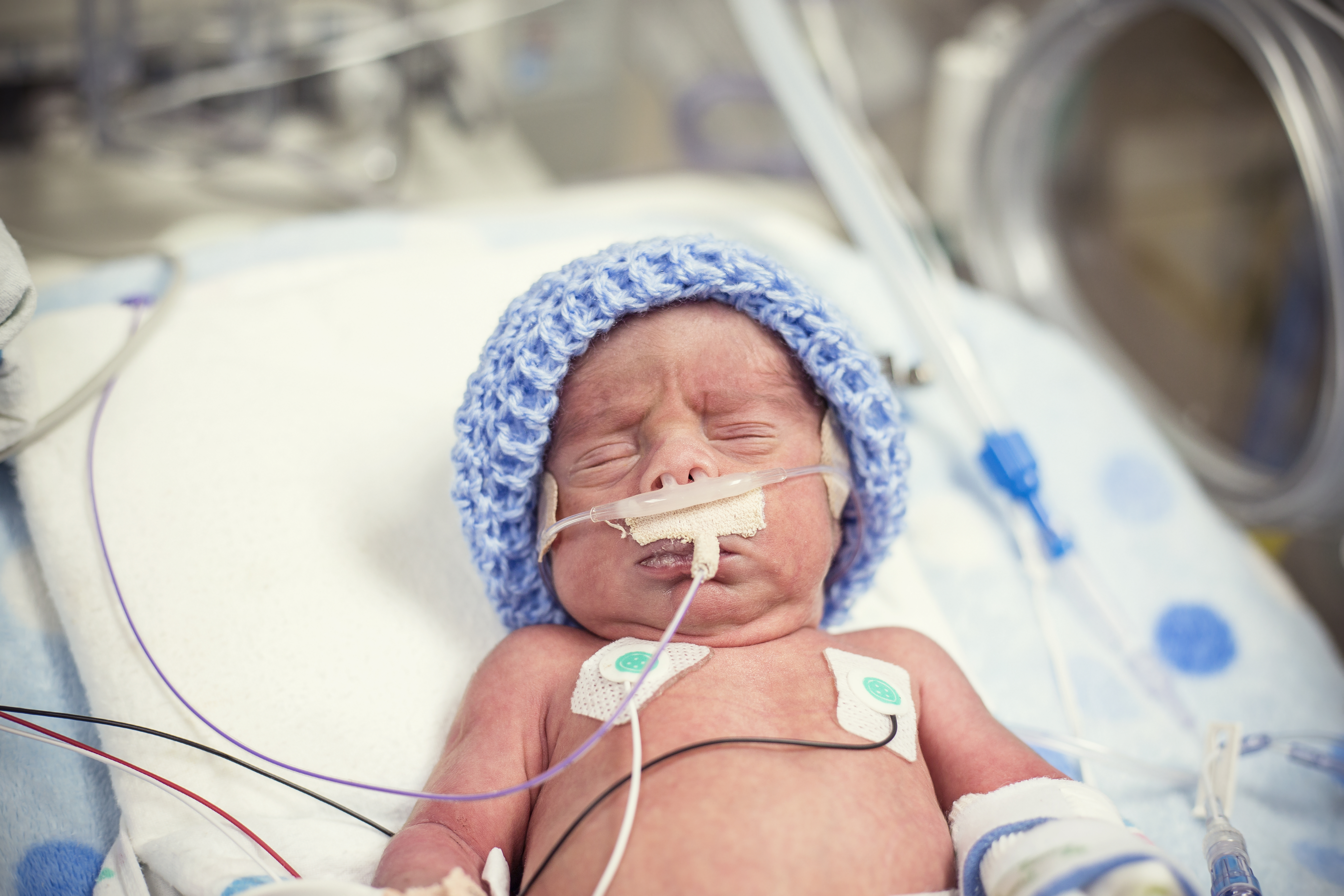Contents:
- Medical Video: High Blood Pressure | Hypertension | Nucleus Health
- The danger of high blood pressure that should not be underestimated
- Various symptoms of high blood pressure to watch out for
- 1. Your blood pressure is above 140/90 millimeters of mercury (mmHG)
- 2. Headaches
- 3. Bloating and difficulty urinating
- 4. Blurred vision
- 5. Difficult to maintain balance
- Who is at high risk for hypertension?
- Risk factors for hypertension that cannot be changed
- Risk factors for hypertension that can still be changed
- How to diagnose hypertension?
- Complications of hypertension if left uncontrolled
Medical Video: High Blood Pressure | Hypertension | Nucleus Health
High blood pressure aka hypertension often appears without symptoms. Many people with this condition do not know that they have high blood pressure for years. Although symptoms of high blood pressure tend to be vague, but that does not mean this disease is not dangerous
In fact, high blood pressure that is not well controlled can damage arteries, especially in the kidneys and eyes. Not only that, high blood pressure also increases your risk of chronic diseases such as strokes, heart attacks, and various other blood vessel problems later on.
Therefore, it is important for you to be aware of symptoms of high blood pressure as early as possible. That way, you can reduce your risk of getting various complications of this disease in the future. Check out all the information about the symptoms of high blood pressure below.
The danger of high blood pressure that should not be underestimated
Hypertension, defined simply as blood pressure that is above the normal limit. Blood pressure is the pressure on the walls of the arteries when pumped out of your heart. The strength of this blood pressure can change from time to time, influenced by what activities are being carried out by the heart (such as being exercising or in normal / resting) and endurance of the blood vessels.
Usually after you have high blood pressure, your body will be susceptible to various disorders. Because, this disease forces the heart to work harder to push blood through the arteries. This ultimately causes the heart muscle to thicken. Although we usually think that a bigger muscle is a good thing, it's another story with the heart muscle. Enlargement of the heart muscle is not a sign of good health.
Thickened heart muscles make it difficult for the heart to pump blood. In the end it can experience malfunction because it supports a burden that is too heavy to pump blood. In addition, high blood pressure can also cause arteries that surround the heart to harden, eventually leading to a heart attack.
Increased blood pressure can also weaken blood vessels in the kidneys. In fact, the kidneys are organs that are responsible for cleaning dirt from the body. If the blood vessels begin to be disturbed, the kidneys are also affected.
Yes, the kidneys will be more susceptible to interference in carrying out their functions to filter out harmful toxins from the body. If this happens, harmful toxins that cannot be filtered by the kidneys will accumulate in the bloodstream. As a result, you will need a kidney transplant or dialysis. Dialysis is a treatment that involves cleaning the kidney with the help of a dialysis machine.
In addition to threatening some of the most vital organs in the body, hypertension is also a major cause of stroke. When blood is pushed through a vessel in abnormal force, small blood vessels that pass through the brain will rupture.
If the vessels rupture, blood will quickly leak in the brain and then cause increased pressure in the brain so you suffer a stroke. High blood pressure can also be very damaging to blood vessels in the eye, which can cause blurred vision or even blindness.
Various symptoms of high blood pressure to watch out for
Most people with hypertension do not have observable signs or symptoms. In fact, their blood pressure is at a dangerous level. The only way to find out your symptoms of high blood pressure or not is to regularly check blood pressure. Especially for those of you who are at high risk of developing this disease.
Even though many people experience hypertension without clear warning signs, you may experience symptoms that show unhealthy blood pressure levels. Some symptoms include:
1. Your blood pressure is above 140/90 millimeters of mercury (mmHG)
Blood pressure is normal if it shows 120/80. While someone new is called having high blood pressure or hypertension if the blood pressure test results show number 140/90 mmHG or more.
The 140 mmHG number refers to systolic reading, when the heart pumps blood throughout the body. Meanwhile, the 90 mmHG number refers to diastolic reading, when the heart is relaxed while refilling its chambers with blood.
Please note that the systolic pressure is the maximum pressure because the heart contracts, while the diastolic pressure is the lowest pressure when the heart relaxes.
If your blood pressure is between 120/80 and 140/90, this means you are considered to have pre-hypertension. Pre-hypertension is a condition where you do not need hypertension medication but need to be aware of your blood pressure. In this condition you also need to start making lifestyle changes to be healthier in order to prevent a higher rise in blood pressure.
2. Headaches
Some people with hypertension may experience mild or chronic headaches. However, symptoms of high blood pressure on this one may not be so you feel until your blood pressure is really high.
If you have experienced intense pain that has not subsided even after taking medication, you may experience a hypertensive crisis. This condition usually occurs when your blood pressure jumps suddenly and the extremes reach 180/120 mm Hg.
If this is the case, don't wait for your blood pressure to drop. Immediately consult a doctor to get treatment while preventing further complications.
3. Bloating and difficulty urinating
Hypertension is closely related to diabetes and kidneys. If the kidney's blood vessels are damaged because of the side effects of a surge in blood pressure, the kidney may stop functioning to filter out toxins and extra fluid from the body. This has an impact on decreasing urine production. As a result, people with hypertension may experience less frequency of urination or even difficulty urinating accompanied by bloating.
So, it's important for you to pay attention to your daily urination habits, whether it's in the normal range or not. If you suspect symptoms of high blood pressure because of this condition plus you also have various symptoms that have been mentioned above, do not hesitate to consult a doctor immediately.
4. Blurred vision
Apart from having an impact on damage to the heart, brain, and kidneys, it can also cause vision problems in your eyes. Yes, high blood pressure can affect blood vessels in the eye which can cause swelling. As a result, you may experience sudden vision or sudden changes in the function of vision.
The higher your blood pressure and the longer you experience the condition, the more likely you are to experience severe damage to your eyes. This eye damage can continue to become blind if your hypertension is not controlled.
5. Difficult to maintain balance
Often feeling sudden dizziness and difficult balance can be an early warning sign of a stroke caused by high blood pressure. If you feel dizzy and lose your balance due to obvious reasons such as watching 3D movies, playing comedy at the night market, standing too fast from a sitting position, you don't need to worry.
But if you experience it continuously without knowing the exact cause, this can be a symptom of high blood pressure that you should not ignore. Immediately consult a doctor as soon as possible for further treatment.
Who is at high risk for hypertension?
Basically the risk of hypertension can be divided into two, namely those that can be changed and cannot be changed. Some risk factors for hypertension cannot be changed anymore. However, there are still many risk factors for hypertension that can be changed and controlled so that your chances of developing symptoms of high blood pressure can be reduced. Here are people who are at high risk for hypertension.
Risk factors for hypertension that cannot be changed
- Age. Your risk of developing high blood pressure increases with age. Because, the more age, our blood vessels become stiffer, not elastic anymore. As a result, blood pressure increases. However, this condition can also occur in children even though it is rare.
- History of family hypertension.If parents, siblings, or other family members have high blood pressure, you are more at risk of getting hypertension.
- Gender.Until reaching the age of 64 years, men are more susceptible to high blood pressure than women. Whereas at the age of 65 years and over, women who are more prone to high blood pressure.
Risk factors for hypertension that can still be changed
- Obesity and being overweight
Obesity and being overweight are the biggest risk factors that increase the risk of hypertension. The heavier your body mass is, the more blood is needed to deliver oxygen and nutrients to all body tissues. This causes the pressure in the arteries to increase so that it can relax the blood smoothly. As a result, the heart forced to work hard for a long time can be damaged.
You are classified as overweight if your body mass index is above 23. While you are classified as obese if your body mass index is above 25. To find out what your body mass index is, you can check it on the IMT calculator here.
- Lack of physical activity
People who are lazy to move their heart rate tend to be high. This means that your heart has to work harder to get rid of blood in every beat. However, when you exercise the body will produce hormones that relax blood vessels and reduce pressure in the blood. The lack of physical activity also increases your risk of being overweight.
- Consumption of excess salt
Eating too much food containing salt can interfere with the natural balance of sodium in your body. Not only that, sodium content in salt can also narrow blood vessels. Both of these can then increase blood pressure.
- Alcoholism
Consumption of alcohol in small doses may benefit your body. But it's another story if you consume excessive amounts of alcohol. Because, it can affect the nervous system and narrow the blood vessels. As a result, heart rate and blood pressure can increase.
- Smoke
Not only increases blood pressure, the chemicals contained in cigarettes can also damage your blood vessels. This causes narrowing of arteries which increases the risk of heart disease. Even people who become passive smokers or use other types of tobacco are also at risk of getting hypertension.
- Stressful
Severe stress can increase blood pressure quite dramatically, even if only temporarily. In addition, when you are stressed you will most likely not notice your diet, lack of exercise, smoking, or drinking alcohol - which can then be a risk factor for hypertension.
- Pregnancy
Pregnancy can sometimes increase the risk of hypertension. High blood pressure that occurs during pregnancy is called gestational hypertension. If your blood pressure does not return to normal within 12 weeks of giving birth, you may have chronic hypertension at all times.
- Certain medical conditions
Some chronic diseases such as kidney disease, diabetes, and sleep apnea can also increase your risk of developing hypertension. Controlling the disease can help you keep blood pressure stable.
How to diagnose hypertension?
The only way to diagnose hypertension is to do a blood pressure test. The diagnosis of hypertension is made if twice the blood pressure measurements at different times show results of more than 140/90 mmHg.
If you suffer from chronic diseases, such as diabetes or kidney disease, and blood pressure is more than 130/80 mm Hg, you are also diagnosed with hypertension. Usually the doctor will ask you to check your blood pressure again and track it repeatedly regularly.
But it also needs to be understood that the results of blood pressure checks at the doctor and at home can be different. The reason is, if you feel nervous about being in a hospital or at a doctor's office, your blood pressure can rise at each visit so that the results seen from a doctor's examination that your blood pressure is generally high.
This phenomenon is also called "white coat hypertension" Therefore, your doctor may want to measure your blood pressure more than once and away from the practice room. This is to ascertain whether you only have white coat hypertension or you really have high blood pressure.
If you have white coat hypertension, the risk of high blood pressure is likely to increase in the future. Therefore, it is important to check blood pressure by a doctor or other health professional regularly at least every six to 12 months. This will give you plenty of time to make lifestyle changes that might help.
Complications of hypertension if left uncontrolled
Because in many cases the symptoms of high blood appear to be vague, most people often treat this condition. In fact, high blood pressure that is left or not treated properly can have a serious impact on the health of the body.
Reporting from the Mayo Clinic, the following are some of the complications of hypertension that might occur if the tension continues to be left high:
- Heart attack. Hypertension can cause hardening and thickening of the arteries of the arterial arteries called atherosclerosis. Atherosclerosis causes blockage of blood vessels, so the heart does not get enough oxygen. As a result, you can have a heart attack.
- Stroke.In people who have hypertension, a stroke may occur when the blood pressure is too high so that blood vessels in one area of the brain rupture.
- Heart failure.Hypertension causes the heart muscle to pump blood harder to meet the needs of blood to all parts of the body. This causes the heart muscle to thicken so long that the heart has difficulty pumping enough blood. Consequently, heart failure can occur.
- Kidney problems.Uncontrolled high blood pressure can also cause the blood vessels in the kidneys to narrow and weaken. This can then interfere with kidney function and cause chronic kidney disease.
- Eye disorders. Blood vessels in the eye can also narrow and thicken due to high blood pressure. The blood vessels can then rupture and cause eye damage, ranging from blurred vision to blindness.
- Metabolic syndrome. High blood pressure coupled with high blood sugar levels, high cholesterol levels (low good cholesterol levels and high triglyceride levels), and large waistlines can cause metabolic syndrome.
- Difficult to focus.Uncontrolled high blood pressure can also cause cognitive changes. You may experience problems in thinking, remembering, and learning.
- Aneurysm.Hypertension causes one part of the blood vessel to weaken and protrude like a balloon, forming an aneurysm. If the aneurysm continues to grow and eventually breaks, this can be life threatening.

